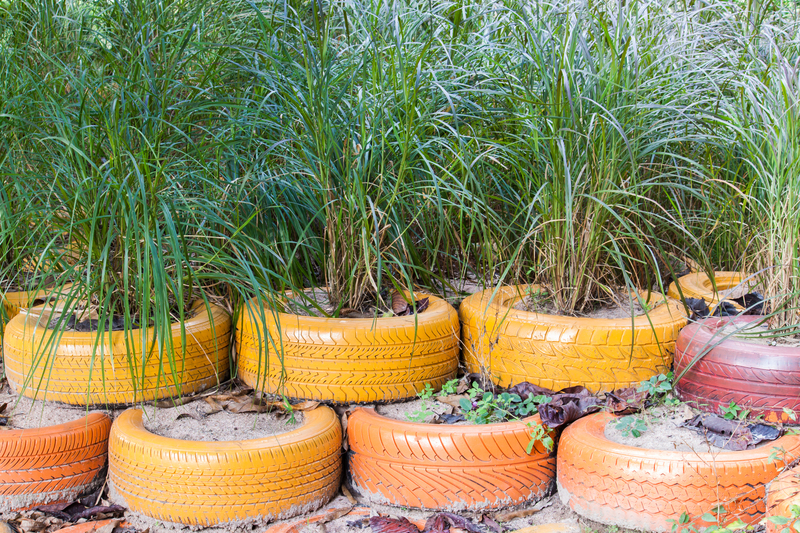As global awareness around environmental sustainability continues to grow, eco-friendly waste treatment practices have become increasingly crucial. These practices not only help reduce the environmental impact of waste but also promote the conservation of natural resources. This article will explore the diverse methods and benefits of eco-friendly waste treatment practices.
Understanding Eco-Friendly Waste Treatment
Eco-friendly waste treatment refers to the processes and methods used to manage waste in a manner that minimizes its negative impact on the environment. Traditional waste management methods, such as landfilling and incineration, can lead to significant environmental challenges, including pollution and resource depletion. In contrast, eco-friendly waste treatment focuses on reducing waste generation, recycling materials, and properly managing waste to mitigate its environmental footprint.

Key Principles of Eco-Friendly Waste Treatment
Eco-friendly waste treatment practices are grounded in several key principles:
- Reduce: Minimizing the amount of waste generated in the first place.
- Reuse: Finding ways to repurpose waste materials instead of discarding them.
- Recycle: Processing waste materials to create new products, reducing the need for raw materials.
- Recovery: Extracting useful materials or energy from waste.
- Disposal: Safe treatment and disposal of waste that cannot be reused or recycled, with minimal environmental impact.
Sustainable Waste Treatment Technologies
Several technologies have been developed to support eco-friendly waste treatment:
Biological Treatment Methods
Biological treatment methods use natural processes involving microorganisms to break down organic waste. Prominent methods include:
- Composting: This process converts organic waste into nutrient-rich compost, which can be used to enrich soil in agriculture.
- Anaerobic Digestion: Organic waste is broken down in the absence of oxygen, producing biogas that can be used as a renewable energy source.
Mechanical and Thermal Treatment Methods
These methods involve physical and chemical processes to reduce waste volume and extract useful resources:
- Mechanical Biological Treatment (MBT): This combines mechanical sorting and biological treatment to separate recyclable materials and produce biogas.
- Pyrolysis: This thermal decomposition process occurs in the absence of oxygen, converting waste into bio-oil, syngas, and charcoal, which can be used as fuel or industrial inputs.
- Gasification: Waste is converted into syngas by reacting with oxygen at high temperatures. Syngas can be used to generate electricity or as a chemical feedstock.
Eco-Friendly Waste Management Practices
Some effective waste management practices can significantly contribute to eco-friendly waste treatment:
Source Reduction and Segregation
Reducing waste begins at the source. By adopting practices that decrease waste generation and segregating waste at its origin, the efficiency of subsequent treatment processes can be significantly improved.
Recycling and Upcycling
Recycling involves the collection and processing of materials that would otherwise be thrown away as trash and turning them into new products. Upcycling, on the other hand, converts waste materials into new materials or products of higher quality or environmental value.
Extended Producer Responsibility (EPR)
EPR is a policy approach where manufacturers are held responsible for the entire lifecycle of their products, especially for take-back, recycling, and final disposal. This incentivizes producers to create more sustainable products and reduce waste.
Community Engagement and Awareness
Raising public awareness and engaging communities in sustainable waste management practices is vital. Community involvement can permanently change waste generation and disposal habits, fostering a more sustainable environment.
Innovations in Waste Treatment
Technological advancements continue to push the boundaries of what's possible in eco-friendly waste treatment:
AI and Machine Learning
Artificial intelligence and machine learning can optimize waste sorting processes, making recycling more efficient and reducing contamination rates.
Smart Waste Management Systems
These systems use sensors and data analytics to monitor waste levels and optimize collection schedules, reducing fuel consumption and greenhouse gas emissions.
The Environmental and Economic Benefits
Adopting eco-friendly waste treatment practices offers numerous environmental and economic benefits:
- Reduced Environmental Impact: By minimizing waste sent to landfills and reducing pollution, these practices help preserve natural ecosystems and reduce greenhouse gas emissions.
- Resource Conservation: Recycling and reusing materials prevent the depletion of natural resources and reduce the energy required for manufacturing new products.
- Economic Efficiency: Proper waste treatment practices can lower waste management costs, create jobs in recycling and green energy sectors, and generate revenue from the sale of recycled products and energy.

Challenges and Future Directions
Despite their many benefits, implementing eco-friendly waste treatment practices can be challenging:
- Technical and Financial Barriers: Advanced waste treatment technologies may require significant investment and technical expertise.
- Public Participation: Ensuring community involvement and changing public behavior regarding waste management can be difficult.
- Policy and Regulation: Effective waste management requires robust policy frameworks and proactive government support.
The future of eco-friendly waste treatment lies in continued innovation, investment, and policy development. Advances in technology, coupled with strong community engagement and supportive policy environments, can drive the transition toward sustainable waste management practices globally.
Conclusion
Eco-friendly waste treatment practices are essential for building a sustainable future. By embracing methods that reduce, reuse, recycle, and recover waste materials, we can significantly mitigate the environmental impact of waste, conserve valuable resources, and foster economic efficiency. As technology evolves and public awareness grows, the adoption of these practices will become more widespread, paving the way for a cleaner, greener planet.
